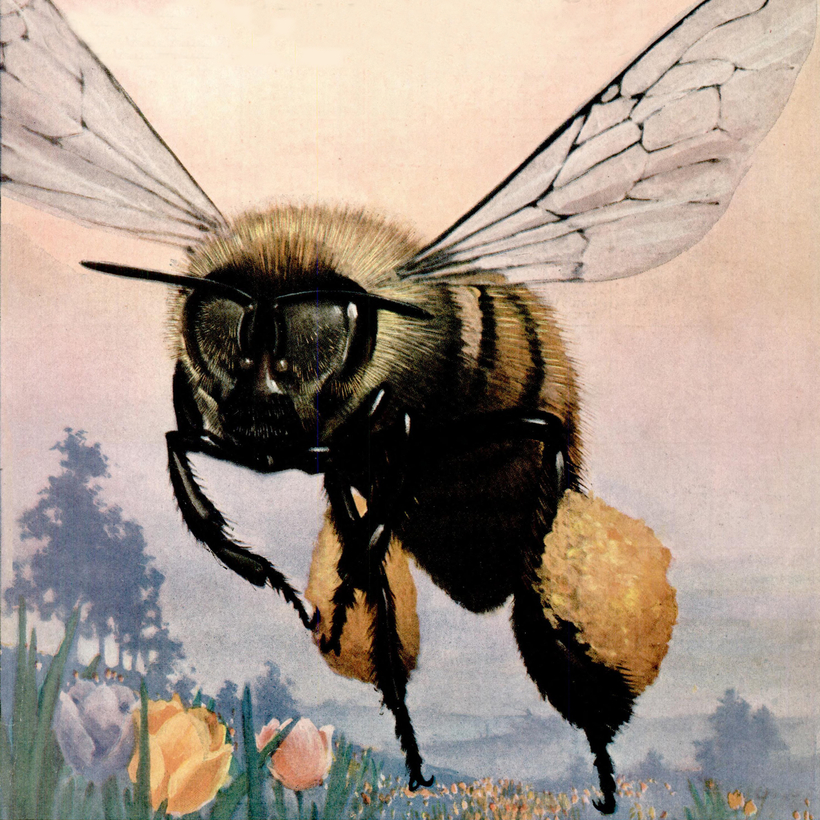Bees may be famously hard workers but a study suggests that as they forage for food they rely not only on industry but a clever gardening technique.
Researchers have found that during times when pollen, their sole source of protein, is in short supply, bumblebees will nibble the leaves of flowerless plants.
The damage causes the plants to accelerate the production of new flowers, giving the bees new food supplies.
The bumblebee bites, lasting only seconds, can encourage some plants to bloom 30 days earlier, a study in Science suggests.
The researchers tried to mimic the bees’ behaviour, by using metal forceps and razors to perforate leaves but without the same effect.
“It remains possible that bees inject chemicals into the plants to promote flowering,” Lars Chittka, a bee specialist at Queen Mary University of London, said in a commentary in the journal.
If that were the case and the bees’ secret formula could be replicated, Professor Chittka suggested that “scientists might realise a horticulturist’s dream” by producing a means by which “flowering can be accelerated by a full month”.
Bumblebee bites, lasting only seconds, can encourage some plants to bloom 30 days earlier.
The bees’ gardening technique was revealed by a series of experiments over several years. This included the researchers comparing the leaf-damaging behaviour of bees from colonies that were starved of pollen with others that were well-fed.
The pollen-starved bees made considerable efforts to puncture holes in the leaves of flowerless plants. Those from well-fed colonies rarely did.
Another experiment looked at the effects on plants. When exposed to leaf-biting bees, black mustard flowered two weeks’ earlier.
Tomato plants that were nibbled by the insects came into flower a month earlier than those undamaged. “Bumble bees appear to perform a low-cost, but highly efficient, trick to accelerate flowering in plants around their nest under conditions when flower pollen resources are most urgently needed for colony growth,” the researchers, who were led by Foteini Paschalidou, of the Swiss University ETH Zurich, concluded.
Precisely how the damage accelerates flowering is unknown. It is possible, says Professor Chittka, who was not involved in the experiments, that the plants interpret the bee bites as a threat from a herbivore.
This might push the plant to flower before it is destroyed. “Plants are known to speed up their flowering as a response to various stressors, but there are no known examples of such a response to herbivory,” he wrote.
Experts are concerned that the risk of bees starving will increase because of climate change. The emergence of the insects after hibernation is strongly influenced by temperature. By contrast, flowering relies heavily on increased exposure to light as the days lengthen in spring, a pattern that does not change from year to year.
The findings will add to a broader reappraisal of the abilities of bees.
They have less than 0.01 per cent of the brain cells of a human but studies have suggested that they can perform basic arithmetic and understand the concept of zero, which some experts argue eluded humans until the 7th century.
There is evidence that well-trained honeybees can count to five. Researchers also found that they could be trained to recognise human faces, as long as they were tricked into thinking that the faces were oddly shaped flowers.

